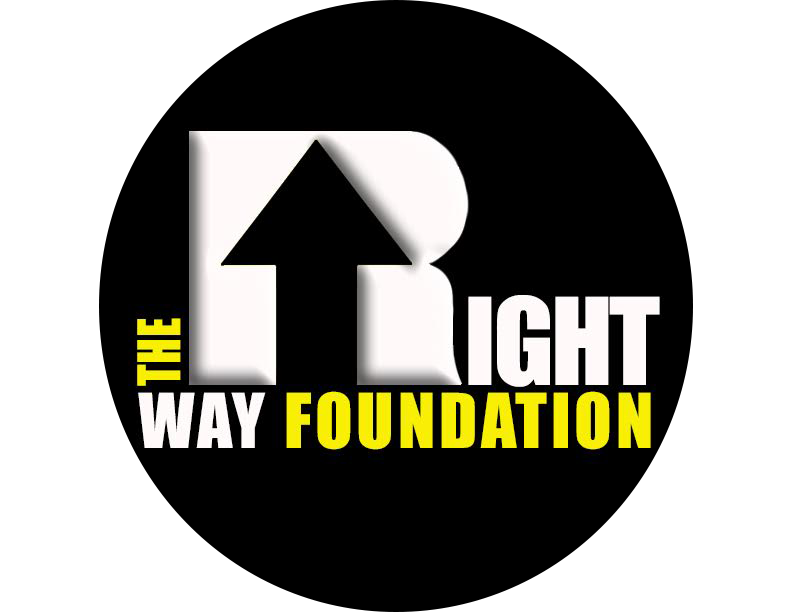Organization Background
The RightWay Foundation (RightWay) was established in 2011 to support current and former foster youth and re-entry youth, ages 18-26+, as they transition into adulthood. After observing firsthand how unresolved trauma creates barriers to job retention and economic well-being, RightWay pioneered Operation Emancipation (OE), a service delivery model that addresses past trauma, promotes healing, and supports successful employment by integrating mental health services and employment services.
In the last thirteen years, RightWay has served as a lifeline for over 1000 young adults, ages 18+, in Los Angeles County. RightWay’s programs counter resistance to mental health treatment with the goal of a long-lasting job, building bridges to employers, housing, and support that enable youth to cross from a point of trauma and isolation to the permanent footing of self-sufficiency and community. The RightWay Foundation does critical preventative work to end the pipeline from foster care to homelessness, unemployment, incarceration, and poverty by providing foster youth with therapy, job training, community support, and connections to opportunities in the workforce.
Last fiscal year (July 1, 2022-June 30, 2023), RightWay supported 121 transition-age youth and achieved these results:
95% reported an increase in social support and a decrease in social isolation,
80% obtained employment/paid work experience
76% retained employment for at least 6 months
82% of youth reported improved mental health and emotional well-being, as measured by the Brief Universal Prevention Program Survey (BUPPS)
85% of youth who meet the criteria for a DSM 5 diagnosis/es reported a decrease in symptoms and behaviors related to their mental health diagnosis/es as measured by standardized assessments.
95% return for supportive services
35% enrolled in college
Trauma-Responsive and Healing-Centered Training
The RightWay Foundation trains and supports employer partners and community-based organizations that employ and serve transition-age youth, as they work to integrate trauma-informed and healing-centered best practices into their workplace culture. Young adults impacted by the foster care, justice, and mental health systems have experienced a significant amount of trauma without receiving the support that is critical to their healing, emotional well-being, and self-sufficiency. Studies show that youth exiting these systems encounter high rates of Post Traumatic Stress Disorder (PTSD), unemployment, homelessness, incarceration, recidivism, and social isolation, citing trauma as an underlying factor.
Employers and non-profit partners have reported that a trauma-informed approach to workplace management and operations helps companies retain employees and builds morale of young adults and employers/service providers.
Since 2016, we have trained over 20 corporate and non-profit partners on trauma-responsive and healing-centered workplace best practices.
Collaborators include:
Anthony and Jeanne Pritzker Family Foundation (Foster Nation)
Armory Center for the Arts
Better Youth
Big Bear Retreat Center
Bloomingdale’s
Craft Contemporary
Crews 1972
Drobe’s Stogies
Faith Foster Families Network (3FN)
Grand Performances
Hammer Museum
Ingrid Calame Studios
Kids In The Spotlight (KITS)
LA Commons
Los Angeles County Department of Public Social Services
MGX Creative
Ryman Arts
Social and Public Art Resource Center
TJX Corporation
University of Southern California Joint Educational Project
University of Southern California School of Early Childhood Education
Venice Arts
RightWay’s trauma-responsive and healing-centered training can be adapted to meet the needs of any organization.
Outline of training content:
What is Trauma?
The 3 Es of Trauma (Events, Experience, Effects)
Adverse Childhood Experiences
A Trauma-Informed Approach
Protective Factors
Building Supportive Relationships with Young Adults as a Primary Protective Factor
Our 8-hour interactive training incorporates discussion, scenario-based activities, role plays, and group work.
The training highlights the various impacts of trauma and emphasizes the primacy of the relationship with young adults who have experienced trauma.
Training encourages participants to engage in self-reflection, so that they gain an understanding of how their own personal experiences, biases, and perspectives impact the relationship with young adults.
For participants to get the most out of training, larger groups should be divided into cohorts of no more than 20 people.
investment:
The cost per training is $10,000 per cohort.
